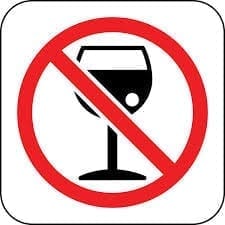Opinion Piece: Lowering the transportation sectors risk with sophisticated industrial breathalyser equipment
By: Rhys Evans, Director of ALCO-Safe Drunk driving causes thousands of deaths every year in South Africa, and the statistics around this problem are frightening. Driving under the influence of alcohol endangers the life of the driver, any passengers, and all other road users. South African law has strict alcohol limits for drivers, and even a single drink for a person with a light body weight is enough to put a professional driver over the legal threshold. The bottom line is that drinking and driving is illegal, and the consequences affect the lives of real people every day. Businesses in the transportation sector need to enforce a zero tolerance approach to drinking and driving, using a combination of appropriate substance abuse policies, education, and the latest breathalyser technology. Those driving under the influence of alcohol cause road deaths and severe injuries on an almost daily basis. According to the World Health Organisation (WHO) “Global Status Report on Road Safety 2013” 55% of deaths related to road traffic incidents in South Africa involve alcohol. Research from the South African Medical Research Council reveals that in 50% of all road accidents alcohol is a contributing factor. Local research indicates that 60% of drivers who die in motor vehicle accidents have dangerously high levels of alcohol in their blood, and that at night, one out of every seven road users is drunk. These statistics indicate a major problem on local roads, and incidents affect families and the economy, as often the victims are the main breadwinners of a household. According to the National Road Traffic Act, Section 65, no person shall on a public road drive a vehicle or occupy the driver’s seat of a motor vehicle with the engine running, while under the influence of intoxicating liquor or a drug having a narcotic effect. Any drivers caught operating a vehicle while under the influence are liable to be arrested, with a maximum penalty of a R120 000 fine and/or six years in prison. Intoxicated drivers can also have their driver’s license suspended. From an insurance perspective, driving negligently or while under the influence invalidates insurance claims, leading to further expenses. The repercussions are frightening for the public, but companies that are in the business of transportation face the same consequences and more. South African law stipulates that a professional driver may not have a breath alcohol concentration exceeding 0.10mg per litre or a blood alcohol concentration of 0.020%. This means that even a single drink right before driving is enough to put a professional driver weighing 65kg or less over the limit. If accidents occur while drivers are under the influence of alcohol, the company itself will be subject to hefty fines, and drivers may be prosecuted in a criminal caught. Aside from the obvious costs involved, alcohol abuse also causes lost productivity, disease, increased medical bills and increased risk. Research shows that just a single drink doubles a driver’s chance of causing an accident, which introduces an unacceptable level of risk for transportation organisations. Alcohol-related incidents also often result in increased insurance premiums, further adding to costs.Transport organisations need to enforce a zero tolerance approach to driving under the influence, to ensure the safety of road users, limit their own liability, and avoid the variety of consequences and costs involved. This involves a multi-faceted approach of implementing appropriate policies, educating drivers as to the dangers and implications of driving under the influence of alcohol, and taking advantage of the latest equipment for the detection of alcohol on the breath.
Industrial breathalysers are readily available, and are often included as part of a program to prevent driving while under the influence. New technology can even prevent vehicles from being operated if the driver is over the legal limit. These devices require that prior to operating the vehicle, the driver takes a breath alcohol test. Any driver whose breath alcohol levels are above a predetermined range will be unable to start the vehicle, thus preventing him or her from driving under the influence. In addition to testing equipment, substance abuse policies need to be created in line with national alcohol laws and limits, and strongly enforced throughout the organisation. However, education is a critical component in reducing the rate of alcohol-related incidents on South African roads. Many people remain unaware of the dangers of alcohol consumption, alcoholism, and driving under the influence. In addition, education can help employees to understand the reasons for alcohol testing, how to drink more responsibly, the impact of alcohol on their health, how breathalysers work and more. By adopting a multi-faceted approach that uses not only testing and appropriate policies, but education as well, businesses in the transport sector will be able to better control the number of drivers operating under the influence. This will in turn help to drastically reduce the number of drunk drivers on the roads, which will reduce the number of accidents and the negative effect on South African citizens and their families.






